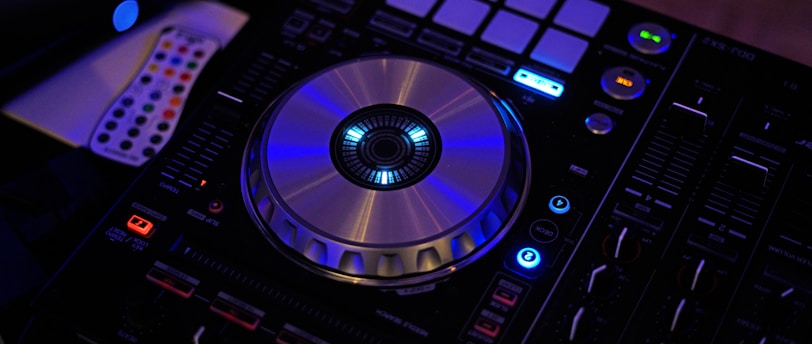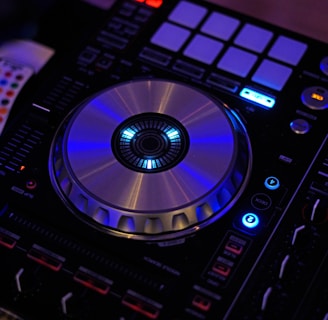Choosing the Right Gear for Your DJ Performance: Considerations and Recommendations for Different Venues and Styles


Introduction
As a DJ, having the right gear is essential for delivering a stellar performance. The equipment you choose can greatly impact the quality and success of your sets, whether you're playing in a small intimate venue or a large festival stage. In this article, we'll explore the key considerations and recommendations for selecting the right gear for your DJ performance, taking into account the various venues and styles you may encounter.
Understanding Your Venue
Before diving into the specifics of gear, it's crucial to understand the venue you'll be playing in. The size, layout, and acoustics of the venue will heavily influence your equipment choices. Here are a few common venue types and the considerations associated with each:
1. Small Clubs and Bars
In smaller venues, space is often limited, and the sound system may not be as robust. Here are some gear recommendations:
- A compact DJ controller: Opt for a smaller, portable controller that doesn't take up much space.
- Powered speakers: Compact, self-powered speakers are ideal for small venues where additional amplification may not be available.
- Headphones: Invest in a good pair of closed-back headphones to block out external noise and focus on your mix.
2. Large Clubs and Festivals
When playing in larger venues, you'll need more powerful equipment to fill the space and cater to larger crowds. Consider the following gear:
- Professional DJ mixer: Look for a mixer with multiple channels, effects, and high-quality sound reproduction.
- High-output speakers: Opt for larger speakers or a line array system to ensure your music reaches every corner of the venue.
- Subwoofers: Enhance the low-end frequencies with subwoofers to create a more immersive experience.
- Stage monitors: If you're performing on a large stage, having stage monitors will help you hear your mix clearly.
3. Outdoor Events
Outdoor events present their own unique challenges, such as dealing with unpredictable weather conditions and open spaces. Here are some gear recommendations:
- Weather-resistant equipment: Look for gear that can withstand rain, dust, and extreme temperatures.
- Wireless systems: Consider using wireless speakers and microphones to avoid long cable runs and potential tripping hazards.
- Power generators: Outdoor events may not have readily available power sources, so having a reliable power generator is essential.
Choosing the Right DJ Controller
The DJ controller is the heart of your setup, allowing you to mix and manipulate your music. When selecting a DJ controller, consider the following factors:
1. Budget
Set a budget that suits your needs and stick to it. DJ controllers come in a wide range of prices, so there's something for every budget.
2. Features
Consider the features you need for your style of DJing. Some controllers have built-in effects, sample pads, or motorized jog wheels, while others focus on simplicity and ease of use.
3. Software Compatibility
Ensure that the controller you choose is compatible with the DJ software you prefer to use. Popular software options include Serato DJ, Traktor, and rekordbox.
4. Size and Portability
If you frequently travel or play in small venues, a compact and portable controller may be more suitable. However, if you prioritize functionality and have enough space, larger controllers with more features may be preferable.
Essential DJ Software
While the DJ controller is the hardware component, the software is the brain that powers it. Here are some popular DJ software options:
1. Serato DJ
Serato DJ is a widely used software known for its user-friendly interface and integration with various hardware. It offers a range of features, including advanced effects, sample playback, and seamless integration with Serato-compatible controllers.
2. Native Instruments Traktor
Traktor is another popular choice, particularly among electronic and techno DJs. It offers a powerful set of features, including a wide range of effects, remix decks, and extensive MIDI mapping capabilities.
3. Pioneer rekordbox
rekordbox is designed specifically for use with Pioneer DJ equipment. It offers comprehensive track management, advanced performance features, and seamless integration with Pioneer's CDJs and DJM mixers.
4. Virtual DJ
Virtual DJ is a versatile software suitable for both beginner and professional DJs. It offers a wide range of features, including video mixing, karaoke support, and compatibility with a wide range of controllers.
Additional Gear Considerations
Aside from the DJ controller and software, there are a few additional gear considerations to keep in mind:
1. Headphones
Invest in a good pair of headphones that provide accurate sound reproduction and noise isolation. Closed-back headphones are ideal for DJing as they block out external noise.
2. Cables and Adapters
Ensure you have an assortment of cables and adapters to connect your gear to the venue's sound system. It's always a good idea to carry backups in case of any technical difficulties.
3. Laptop Stand
If you use a laptop for DJing, a sturdy laptop stand will elevate your screen to a comfortable height and improve ergonomics during your performance.
4. Equipment Cases
Invest in quality equipment cases to protect your gear during transportation. Look for cases that provide ample padding and secure fastenings to prevent any damage.
Conclusion
Choosing the right gear for your DJ performance is crucial for delivering an exceptional experience to your audience. Consider the venue, style of DJing, and your personal preferences when selecting your equipment. Remember to understand the specific requirements of each venue, and invest in reliable gear that suits your budget and needs. With the right gear in your arsenal, you'll be well-equipped to rock any venue and style with confidence.
